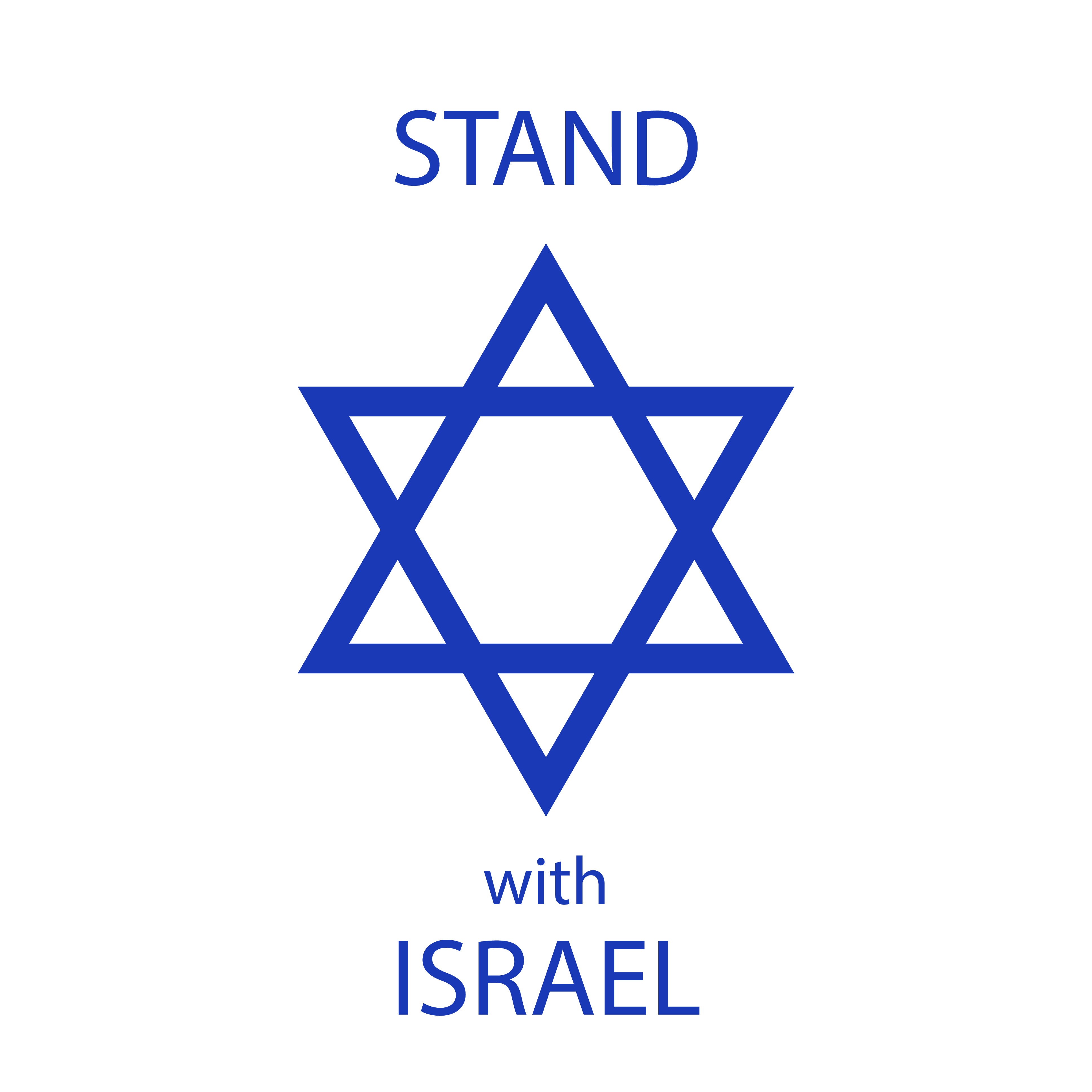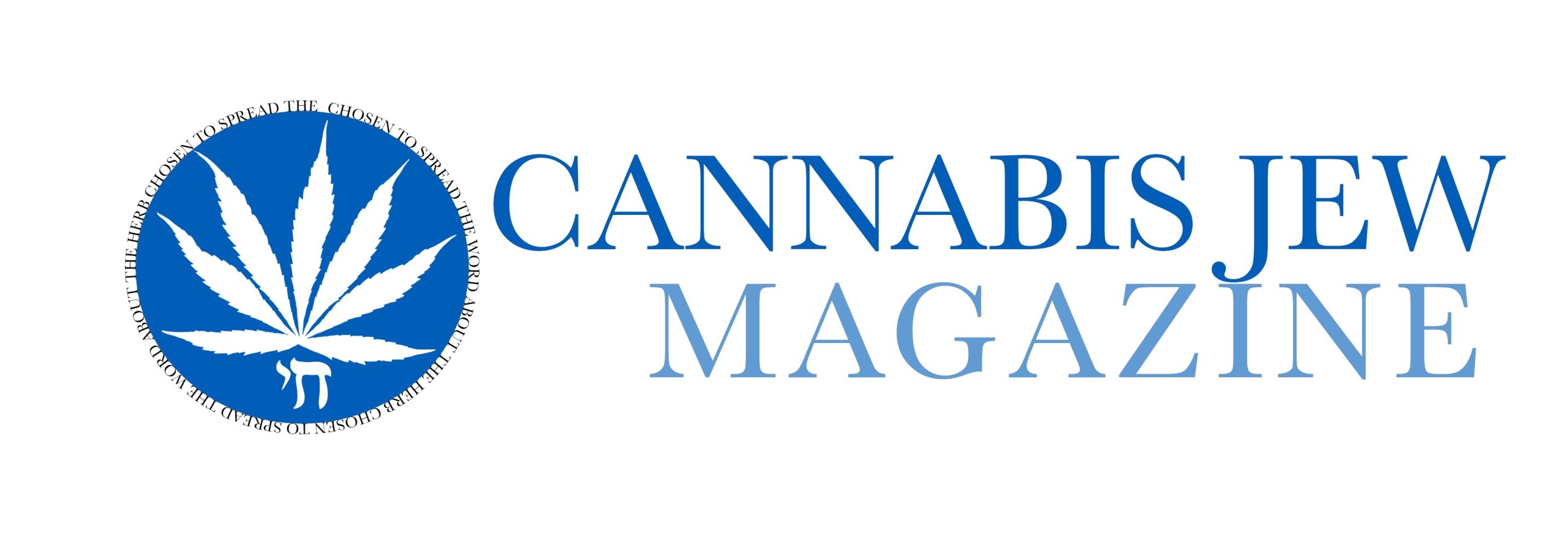CJM interviews Rabbi Yaakov Cohen
Editor-in-Chief Lissa Skitolsky spoke with Rabbi Yaakov Cohen, CEO of Whole Kosher Services, about a wide range of topics in relation to cannabis and Judaism prior to the Hamas massacre on October 7th. Since then, his poignant reflections on Jewish law, culture, and history have taken on new resonance as we resist a new, global wave of antisemitism with expressions of Jewish pride. CJM will be publishing this interview in two parts.
LS: Thank you so much for this interview, it’s been hard to find a Rabbi willing to go on the record to talk about cannabis for Cannabis Jew Magazine.
Rabbi: It’s still stigmatized [in the Jewish community] and it’s going to take a while, that’s the reality, because you know: there was a Teshuva [halakhic ruling] of Rabbi Moshe Feinstein (ZT”L), who was the last, greatest Rabbi of the generation [1895-1986] and he wrote a response to someone who asked him a question: if the students in the yeshiva can smoke pot?
Now of course at the time that he wrote it, which was some time in the 1970’s, of course he was against it, because look at what was going on at the time. And for proper etiquette, for yeshiva students who were supposed to be learning and studying Talmud, that wasn’t a practice. But he did not, I’m pretty sure—but you know I wish I could say—he had prophecy and knew that there were medicinal benefits to [cannabis] but I have to say most likely he [R. Feinstein] didn’t know that there are medicinal benefits.
Most rabbis are using that as their basis for how to respond to this big wave [of legalization]. Now aware of the medicinal properties it has more rabbis are opening up to it, it’s just taking a while. I mean, I get called by rabbis who have arthritis or just had a surgery, and they are looking for Kosher [cannabis] and I have to help them. When they take it, they’ll swear by it, but they can’t openly publicize it; you hear what I’m saying? There is still a shtickle stigma.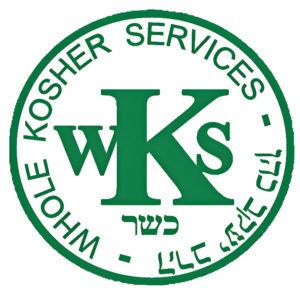
LS: Recently there was a statistic released that Israelis consume more cannabis than any other nation: 27% of the adult population.
Rabbi: What you say makes sense for me; we’re so traumatized from the Holocaust, it’s in our genes. And even if it’s not in our genes, we’re coming from previous reincarnations, where most of the souls in this generation were in the Holocaust. And if you want to be more down to earth, so many Israelis were in the IDF where I know they experience a lot, and many have PTSD.
LS: Well, that would help explain why so many Jews are born with compromised endocannabinoid systems. Meaning, we’re born with a deficit of cannabinoids, right? So, when we consume cannabis, we’re really just getting our levels back up!
Rabbi laughs
LS: It’s about epigenetics, the idea that genetic transmission is affected by cultural factors. So it’s not that we’re born with PTSD, but with a much higher predisposition to PTSD.
Rabbi: Because we’ve been through it.
LS: Right, but it also means . . . in my head I’m always thinking about “cranky Ashkenazis” like Larry David.
Rabbi laughs
LS: Like, I need to consume cannabis to not be a “cranky Ashkenazi,” right? So I don’t fly off the handle whenever I feel threatened, or start dictating my values to others.
Rabbi: I totally hear you, I cannot agree with you more.
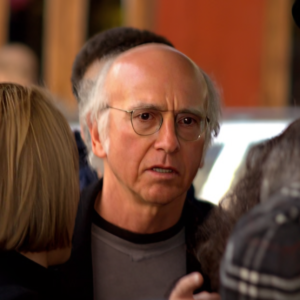
LS: Right? I feel like cannabis Jews are good Jews, because we are really committed to recovering from a lot of generational trauma by finding a path to kindness, and we just want everyone to heal.
Rabbi: I hear you. It’s just like I said before, you know, there’s a wall of stigma and it might take a while. I don’t know if you know my story:
We had a son who died of brain cancer about eight years ago. So we flew to California from Texas, we were on a [cannabis] farm, and this one doctor, you know, he recommended to grind, to juice the bud, and that way it wouldn’t have the psychoactive effect. He also said, “give him the [cannabis] oil, you gotta give him everything.” We were working on it, and it was new then. Our son was doing great, and then we had to go back to Texas, they were going to ship it to us. And then the Feds found it at the post office, and they got into serious trouble. And therefore, Elisha, my son, didn’t get his medicine and then he declined and passed away.
I saw there was a great need [for medical cannabis], and to make it kosher. I was already operating a kosher agency in Texas, so I figured: why don’t I make some of this stuff kosher so at least people taking it for medicine can feel better about it? And my father and a friend of mine said: “go go, go do it. You gotta do it.”
So I went and did it. I took heat for it when I was giving kosher certification to edibles in California and stuff like that. I would get calls from people asking: “What are you doing?,” but they had to back off because I was coming from a place of very deep emotion about this and they understood it was really for medicinal purposes.
It [medical cannabis] needs to be available for people, you know, and ever since then I get calls and emails all the time—every ailment from A to Z, people get benefits from it. So, it’s an herb, it’s an herb made by God. And really I think it’s the king of herbs; would you believe it if I said such a thing?
LS: Please do. I’m a cannabis Jew, this is right up my ally.
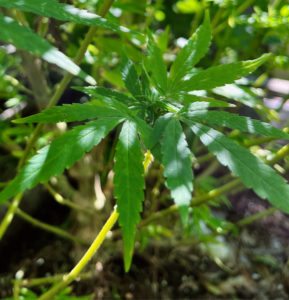
Rabbi: We see that herbs are mostly responsible for healing people. Where did that come from right? It’s curious. Why not other things? It comes from Genesis, the very first chapter: on the third day of creation, G-d says: I want there to be trees with fruit, and I want there to be grasses. And he told the trees: you trees gotta stay separate, you can’t mix. ‘The mango does not tango with the avocado,’ there is no tangoing, right?
And he didn’t say anything to the grasses. So the grasses are saying: “Well what are we going to do? Should we mix or not mix? So they made this kind of, we call it a “kal v’chomer,” this kind of logical syllogism, this argument: “well the trees are normally separate and they were told not to mix, we grasses grow all over the place. So, we shouldn’t mix.” They made this argument: “We’re not going to mix, we’re not going to blend one grass with another.” And G-d said: “Wow! You guys thought of that all by yourself! As a reward, I’m going to give you the the gift of healing.”
LS: Wow.
Rabbi: And there’s lots more to it, in terms of the names of G-d, kabbalistically, and how it lines up with the 13 attributes of compassion. The story comes from the Maggid of Mezritch, the main student of the Baal Shem Tov. He is the one who said that this is why herbs have this power.
LS: I do want to take a moment—as a cannabis Jew—just to thank you for all of the tsuris you’ve suffered because of the stigma, and the service you provide is such a mitzvah.
Getting back to kosher cannabis: there’s been a lot of confusion among Licenced Producers (LPs) who I’ve spoken to in Nova Scotia about the criteria for kosher cannabis. And the most frequent question that I receive, is really confusing to me [given the laws of kashrut]: “is it a problem that there are worms and insects in my soil?”
I’ve also heard that some LP’s interested in exporting cannabis to Israel have been asked to change the formula for their organic, living soils to exclude worms. So now there are a lot of Gentiles asking me if farming is kosher, if Israelis remove the worms in soil.
There’s confusion about the dietary prohibition against consuming insects and worms, and it seems as though hydroponically cultivated cannabis is now somehow seen as more kosher, because there are no insects or worms involved in the process.
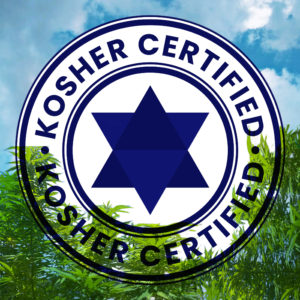
Rabbi: Let me explain: in terms of kosher laws, we don’t care about whatever’s in the soil, right? You can have bugs [and worms] in the soil. There’s no issue here of kosher versus non-kosher.
Now usually anything that is grown from the ground is inherently kosher, the only issue that we have is, if there’s a huge rate of it getting infested with bugs because we’re not allowed to eat bugs. You can clean it, if you can de-bug it, it’s fine. There could be another standard (to explain the concern over soil), maybe it’s business or health standards [for exporting to Israel] but it has nothing to do with being kosher.
LS: I was hoping you could take me through the process of certifying kosher cannabis.
Rabbi: The first thing to mention, a lot of people think—even Jewish people—that Kosher means “blessed by the Rabbi.” And it has nothing to do with that. There’s succinct laws from the Five Books of Moses that I’m sure you’re aware of, that cover all manner and spectrum of food groups, all food items have their own criteria, they have to meet the kosher standards by the laws of the Five Books of Moses.
Let’s take a step back. Basically, two things are needed to make a product kosher: One, it has to come from a kosher source.
Okay so that means [for example], it has to be a kosher slaughtered animal if it’s meat, and if it’s not a kosher slaughtered animal, let’s say, it came from a kosher animal, but it wasn’t slaughtered kosher and it’s a derivative such as gelatin, so that’s not kosher. Fish needs two signs: fins and scales. Any other fish is out [not kosher], or a derivative of it, right? And then you have bugs. We’re not allowed to eat a whole bug.
So intrinsically, really, the marijuana plant as itself is kosher, and doesn’t really need kosher certification if it is just smoked. The only issue would be maybe if it’s eaten raw.
If you eat the bud raw, then you have an issue of: could it have bugs on it? And so you have to check, and find a way to de-bug it. But by and large most people do not ingest the plant that way; when you’re smoking it, if there’s an insect in there it’s burning, and there’s no problem with the insects. So the plant itself [cannabis] doesn’t usually need a kosher certification, even though I give this certification to several places in California and Oregon.
LS: Why do LP’s want their cannabis to be certified kosher if it already is?
Rabbi: They want it because it’s something that marketable, they put a Kosher symbol on the packaging, it’s something that helps them and people feel better, another pair of eyes looked at it, it’s a third-party inspection.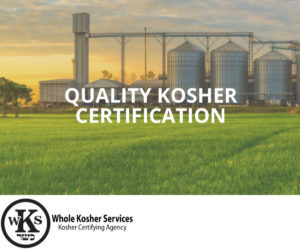
LS: I did get the impression at my Jewish Day School that saying a blessing is part of what makes something kosher.
Rabbi: Saying blessings is very, very important but not as far as giving something a kosher certification, to testify or affirm that something is kosher.
There’s no blessing said on that, you just have to make sure it comes from kosher sources, that’s one. And number Two:
Number two is that there can’t be any cross-contamination with equipment. In other words, we’re worried about the pot that it’s cooked in, because [for example], if it’s a non-kosher pot that someone cooked pork in, and then you want to cook your meat in the same pot, that’s what results in cross-contamination. And therefore your food becomes not-kosher.
So there’s two things we look at in kosher certification [of cannabis]:
One is the raw materials and the other is the equipment used for manufacturing. The equipment, of course, these days everybody is breaking it [cannabis] down into oils, and so when you break it down into oil we have to verify the solvents, that’s the big thing.
We have to make sure that the solvents used are coming from a kosher source.
The biggest solvent used, even though I think it’s fading out, but probably you have more information than me, is ethanol, and ethanol—forget about Passover—but ethanol could come from a lot of different things. It could come from wheat, yes. It could come from corn, most likely, and even sugar, but it could also come from grapes. Some places make ethanol from whey, which is like cheese. These both present kosher issues.
So, if you use those items in terms of your solvents, it could be an issue. Even though, let’s say you’ll burn it out, you have to make sure that it’s burned out all the way; you have to see the spec sheets in terms of that, but usually what we want to do is keep away from those non-kosher elements and recommend that you don’t use [particular solvents].
So any solvents we have to go through to make sure it’s kosher. and then of course, once you have your oil, if you want to make gummies, you want to make chocolate, or you want to make drinks, then we have to go through all of the ingredients to make sure that they’re coming from kosher sources.
Then, we have to make sure that the equipment is not shared, like you’re not making gelatin gummies one day and then kosher gummies the next. And we’ll make routine inspections of the facility to make sure nothing’s changed. And then that’s basically it, that’s what kosher certification is about.
LS: Do you say an actual blessing at the facility?
Rabbi: No, I don’t. No, there’s no blessing.
The only need for a blessing is, if you crumble it [cannabis] in your salad, and you’re going to eat it in a salad, assuming you debug it first.
The only need for a blessing is, if you’re having a gummy and you have to make a blessing on the gummy before you eat it.
We are not allowed to derive any benefit in this world before making a blessing, because there’s a verse that says, “the earth is G-d’s and everything in it.”
And then there’s another verse that says, “G-d gave the earth to man.” Wait a minute, if everything belongs to G-d or he gave it to man, how do you reconcile it?
So they reconcile it before the blessing. It belongs to God. And then when you make your blessing, that’s your payment, if you can say that. Just a recognition, that’s all He wants, just a little recognition, right? And then you can ingest it. It’s only as far as ingesting foods or smelling fragrances that blessings are required.
Rabbi Yaakov Cohen was born and raised in California where he attended Cal State University, Northridge, where he studied philosophy and psychology. He went on to study at a number of leading yeshivot in Jerusalem where he received his Rabbinic ordination.
Rabbi Cohen has been involved in outreach in Texas for the past 20 years and continues to give classes online for TORCH of Houston. He learned Kabbalah under one of the great Kabbalists of Jerusalem, his father-in-law Rabbi Shabtai Teicher OB”M. Rabbi Cohen has taught seminars and lectures of Kabbalah, mysticism and Chassidic thought in both America and Israel and now currently resides with his family in Ramat Beit Shemesh, Israel.
